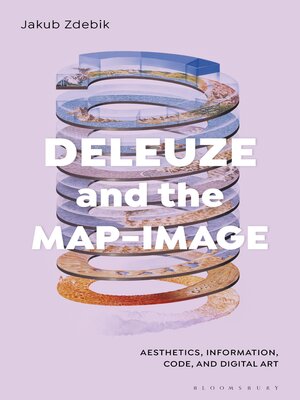
Sign up to save your library
With an OverDrive account, you can save your favorite libraries for at-a-glance information about availability. Find out more about OverDrive accounts.
Find this title in Libby, the library reading app by OverDrive.



Search for a digital library with this title
Title found at these libraries:
| Loading... |
The map, as it appears in Gilles Deleuze's writings, is a concept guiding the exploration of new territories, no matter how abstract. With the advent of new media and digital technologies, contemporary artists have imagined a panoply of new spaces that put Deleuze's concept to the test. Deleuze's concept of the map bridges the gap between the analog and the digital, information and representation, virtual and actual, canvas and screen and is therefore best suited for the contemporary artistic landscape.
Deleuze and the Map-Image explores cartography from philosophical and aesthetic perspectives and argues that the concept of the map is a critical touchstone for contemporary multidisciplinary art. This book is an overview of Deleuze's cartographic thought read through the theories of Sloterdijk, Heidegger, and Virilio and the art criticism of Laura U. Marks, Carolyn L. Kane, and Alexander Galloway, shaping it into a critical tool through which to view the works of cutting edge artists such as Janice Kerbel and Hajra Waheed, who work with digital and analog art. After all, Deleuze did write that a map can be conceived as a work of art, and so herein art is critiqued through cartographic strategies.
Deleuze and the Map-Image explores cartography from philosophical and aesthetic perspectives and argues that the concept of the map is a critical touchstone for contemporary multidisciplinary art. This book is an overview of Deleuze's cartographic thought read through the theories of Sloterdijk, Heidegger, and Virilio and the art criticism of Laura U. Marks, Carolyn L. Kane, and Alexander Galloway, shaping it into a critical tool through which to view the works of cutting edge artists such as Janice Kerbel and Hajra Waheed, who work with digital and analog art. After all, Deleuze did write that a map can be conceived as a work of art, and so herein art is critiqued through cartographic strategies.






